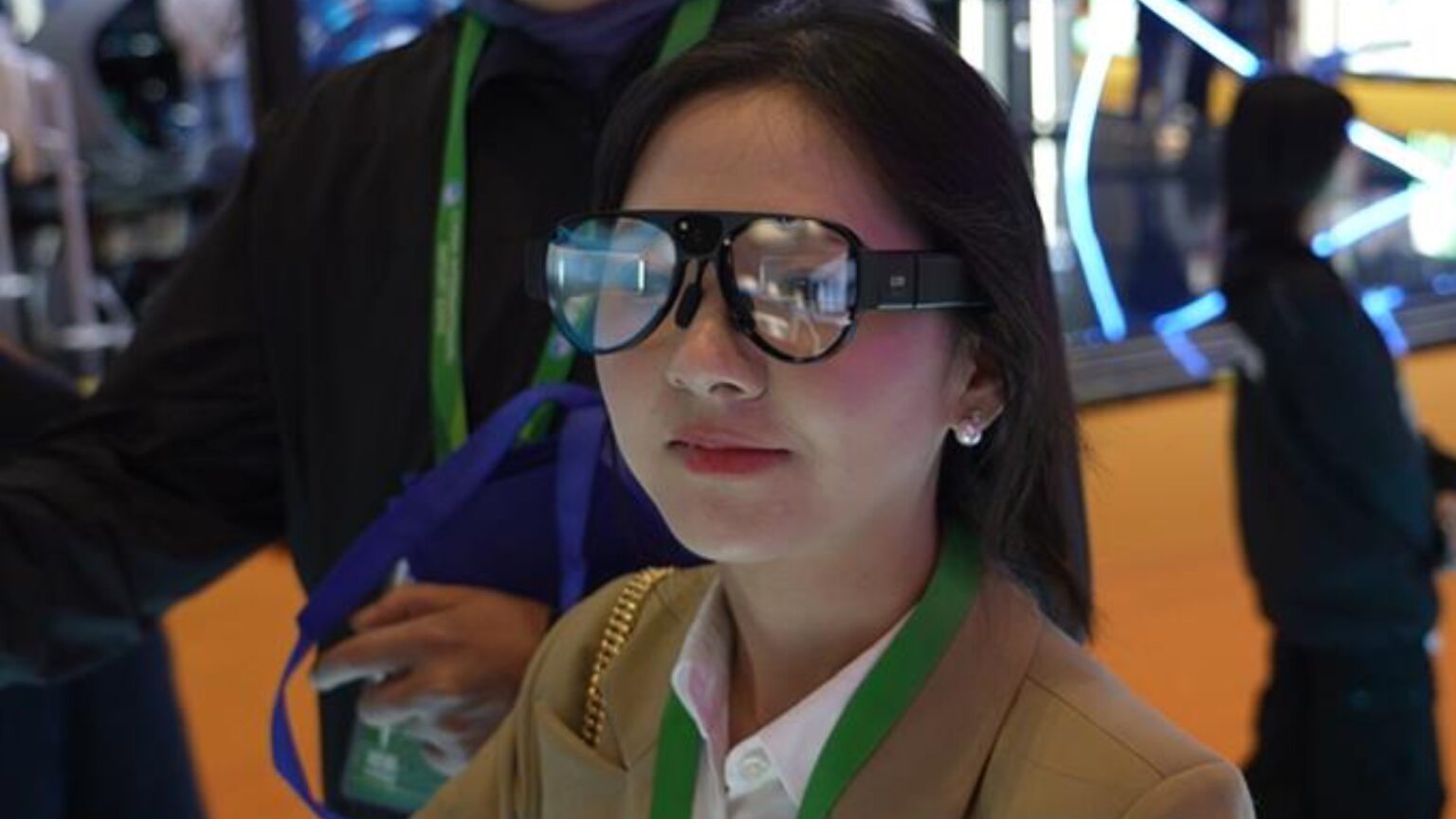The 6th China International Import Expo (CIIE) recently unveiled a line-up of AI and metaverse-enabled devices, promising a significant leap in technological advancements and efficiency.
Headlining the event were the QIDI One AR glasses, a lightweight device developed in collaboration with industry leaders like Huawei and DJI. This product, among others showcased, reflects a trend towards integrating artificial intelligence and metaverse technologies into everyday life, potentially revolutionizing how people interact with the digital world.
#Artificialintelligence and #metaverse-enabled devices, including wireless and lightweight #AR glasses, AI-powered trucks, and AI PCs, were presented at the 6th China International Import Expo. #CIIE
The devices, which increase work efficiency and cut carbon emissions, are… pic.twitter.com/SjDylRSNFU
— Shanghai Daily (@shanghaidaily) November 9, 2023
AR experience with QIDI One
According to a Shina report, the QIDI One AR glasses, weighing 80 grams, stand out with their wireless and user-friendly design. Unlike conventional AR glasses, these do not require charging or data connection lines, as they are equipped with internal processors, batteries, storage, and sensors.
The AR glasses offer real-time information display, video watching on a virtual 85-inch screen, and instant recognition of exhibition personnel identities. This not only enhances the user experience but also exemplifies how AR technology could be seamlessly integrated into daily activities.
AMD’s AI ventures
AMD, a company that specializes in manufacturing semiconductor devices, showcased its extensive range of AI solutions at the expo, highlighting the versatility of AI applications. Their AMD Ryzen AI CPU demonstrates the potential of AI integration in various sectors, from data centers to personal computing.
These advancements not only optimize performance but also allegedly ensure data privacy and security, addressing key concerns in the digital age. The CIIE also shed light on the expanding global partnerships and market reach of AI and metaverse technologies.
Enhancing efficiency and sustainability
According to familiar sources, AI and metaverse technologies are not just about enhancing the user experience; they also play a crucial role in increasing work efficiency and reducing carbon emissions.
Westwell’s Q-Truck and Q-Tractor, for instance, are AI-powered vehicles designed for use in ports and factories. These vehicles operate 24/7 on a zero-emission basis, thanks to their driverless technology. Their deployment at the Port of Felixstowe, the UK’s largest container port, marks a step towards more sustainable and efficient industrial operations.
The future of AI and the metaverse
The integration of AI and metaverse technologies, as showcased at the CIIE, opens up a world of possibilities. From enhancing personal experiences with devices like the QIDI One AR glasses to revolutionizing industrial operations with AI-powered vehicles, the potential applications are vast and varied. According to experts, the involvement of tech giants like Huawei and DJI in these developments underscores the significant investment and belief in the transformative power of these technologies.
The CIIE has not only showcased the current state of AI and metaverse technologies but also provided a glimpse into a future where these technologies are seamlessly integrated into every aspect of people`s lives.
Meta’s entry into China
In a related report, Meta Platforms Inc. is reportedly in talks with Tencent Holdings Ltd. to introduce its mixed reality headset to the Chinese market. This potential collaboration represents a foray into one of the world’s largest and most dynamic tech markets.
Leveraging Tencent’s robust manufacturing capabilities and strong market presence, this partnership could greatly amplify Meta’s reach and influence in the realm of virtual and augmented reality.









 and then
and then